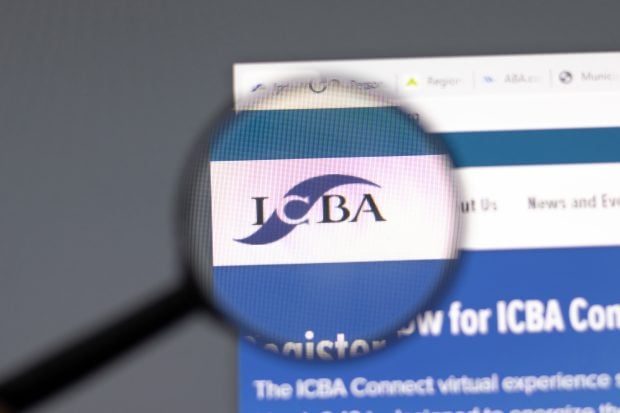 Independent Community Bankers of America's website. (Source: Adobe Stock)
Independent Community Bankers of America's website. (Source: Adobe Stock)
As President Biden prepares to outline possible corporate tax increases to pay for his spending proposals, NAFCU fired back at community bankers who contended that taxing credit unions would be an attractive means for raising revenue.
"The fact is that the estimated benefit credit unions provide the greater economy totals roughly $16 billion a year, or $159 billion over 10 years, according to NAFCU's own independent study," NAFCU Vice President of Legislative Affairs Brad Thaler wrote to members of congressional tax-writing committees.
Recommended For You
Thaler's letter followed one that the Independent Community Bankers of America sent to lawmakers contending that recent purchases of community banks by credit unions demonstrates that the credit union tax exemption is outdated.
"Do not be fooled, ICBA wants you to tax credit unions to eliminate a major source of competition," Thaler wrote to lawmakers.
As early as this week, Biden is expected to provide more details about his spending and tax plans. Those plans are likely to include trillions of dollars in spending in such areas as infrastructure and trillions of dollars in tax increases to offset the spending.
The congressional Joint Taxation Committee last year estimated that the credit union tax exemption will result in $10 billion in lost revenue between 2020 and 2024.
No lawmaker has called for elimination of the tax exemption and Senate Majority Leader Chuck Schumer (D-N.Y.) said at CUNA's recent Governmental Affairs Conference that he is committed to preserving the tax exemption.
Last year, House Consumer Protection and Financial Institutions Subcommittee ranking Republican Rep. Blaine Luetkemeyer of Missouri questioned the implications of bank purchases by credit unions. Luetkemeyer, whose family owns a community bank, did not propose legislation at the time.
Still, anytime Congress opens the tax code, a myriad of proposals circulate.
In his letter, Thaler fired back at the ICBA's assertions about credit union bank purchases.
"First and foremost, it is important to recognize that bank-credit union mergers are voluntary, market-based transactions that require a community bank's board of directors to vote on selling to a credit union," he wrote. "These are not 'hostile' takeovers."
Thaler said if a national bank purchased a community bank, there is the risk that branches might close; credit union purchases often mean that branches remain open.
He reminded lawmakers that bank and credit union regulators must review the transactions, adding that the credit union involved still will be subject to NCUA rules, such as field of membership restrictions.
Many of the purchases have been purchase and assumption transactions and are taxable at the bank level, Thaler said. He said NAFCU estimates that more than $100 million in taxes have been paid in the past several years as a result of these deals.
And he ended with this shot at the bankers: "Perhaps, ICBA's concerns would be better addressed by sending a letter to their members asking why they are choosing credit unions over banks."
© Touchpoint Markets, All Rights Reserved. Request academic re-use from www.copyright.com. All other uses, submit a request to [email protected]. For more inforrmation visit Asset & Logo Licensing.






